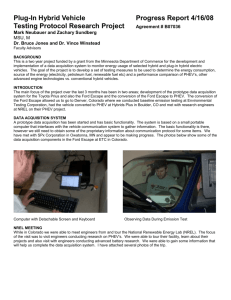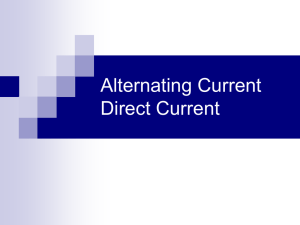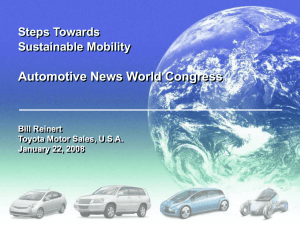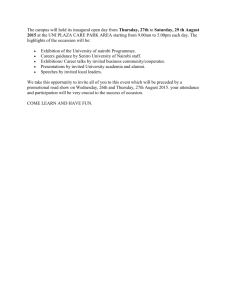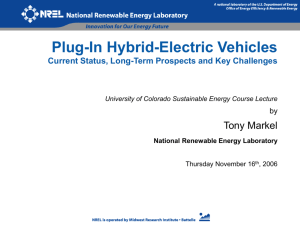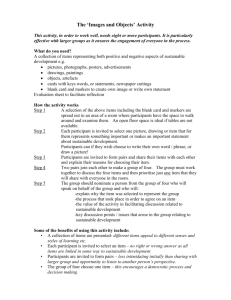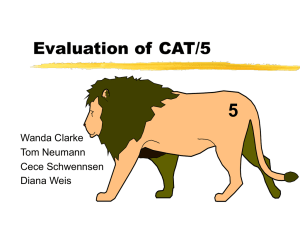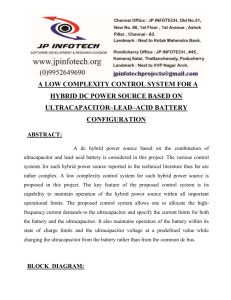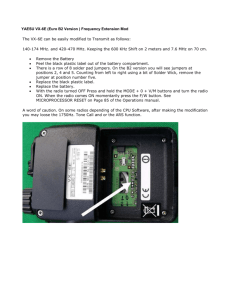Syllabus
advertisement
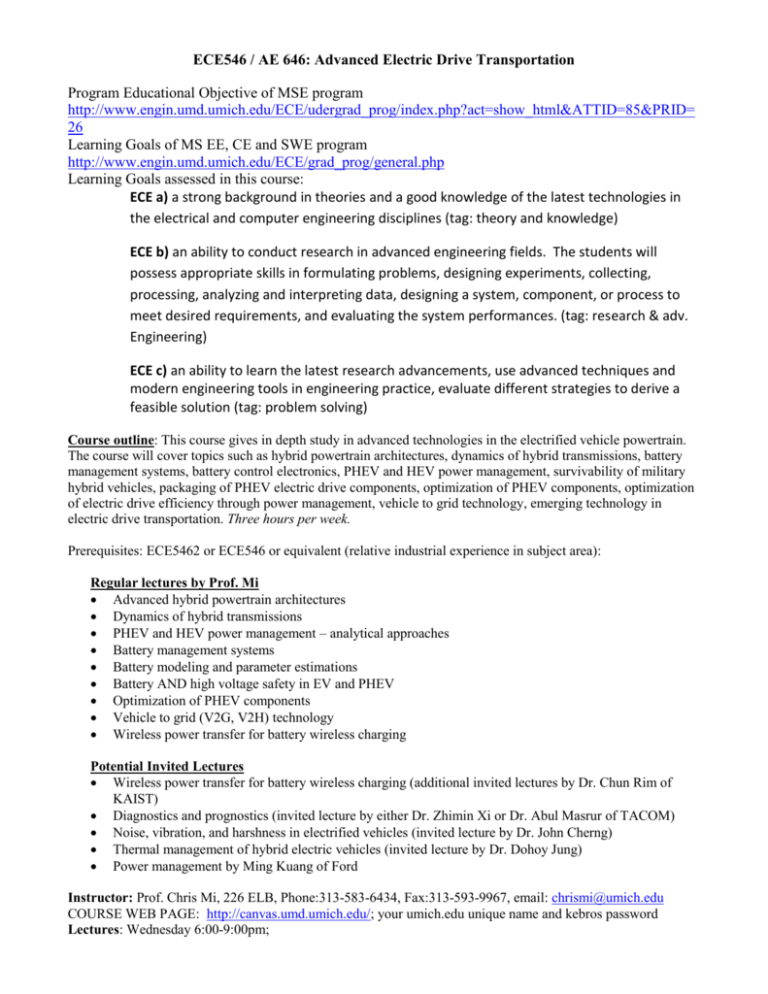
ECE546 / AE 646: Advanced Electric Drive Transportation Program Educational Objective of MSE program http://www.engin.umd.umich.edu/ECE/udergrad_prog/index.php?act=show_html&ATTID=85&PRID= 26 Learning Goals of MS EE, CE and SWE program http://www.engin.umd.umich.edu/ECE/grad_prog/general.php Learning Goals assessed in this course: ECE a) a strong background in theories and a good knowledge of the latest technologies in the electrical and computer engineering disciplines (tag: theory and knowledge) ECE b) an ability to conduct research in advanced engineering fields. The students will possess appropriate skills in formulating problems, designing experiments, collecting, processing, analyzing and interpreting data, designing a system, component, or process to meet desired requirements, and evaluating the system performances. (tag: research & adv. Engineering) ECE c) an ability to learn the latest research advancements, use advanced techniques and modern engineering tools in engineering practice, evaluate different strategies to derive a feasible solution (tag: problem solving) Course outline: This course gives in depth study in advanced technologies in the electrified vehicle powertrain. The course will cover topics such as hybrid powertrain architectures, dynamics of hybrid transmissions, battery management systems, battery control electronics, PHEV and HEV power management, survivability of military hybrid vehicles, packaging of PHEV electric drive components, optimization of PHEV components, optimization of electric drive efficiency through power management, vehicle to grid technology, emerging technology in electric drive transportation. Three hours per week. Prerequisites: ECE5462 or ECE546 or equivalent (relative industrial experience in subject area): Regular lectures by Prof. Mi Advanced hybrid powertrain architectures Dynamics of hybrid transmissions PHEV and HEV power management – analytical approaches Battery management systems Battery modeling and parameter estimations Battery AND high voltage safety in EV and PHEV Optimization of PHEV components Vehicle to grid (V2G, V2H) technology Wireless power transfer for battery wireless charging Potential Invited Lectures Wireless power transfer for battery wireless charging (additional invited lectures by Dr. Chun Rim of KAIST) Diagnostics and prognostics (invited lecture by either Dr. Zhimin Xi or Dr. Abul Masrur of TACOM) Noise, vibration, and harshness in electrified vehicles (invited lecture by Dr. John Cherng) Thermal management of hybrid electric vehicles (invited lecture by Dr. Dohoy Jung) Power management by Ming Kuang of Ford Instructor: Prof. Chris Mi, 226 ELB, Phone:313-583-6434, Fax:313-593-9967, email: chrismi@umich.edu COURSE WEB PAGE: http://canvas.umd.umich.edu/; your umich.edu unique name and kebros password Lectures: Wednesday 6:00-9:00pm; Office hours: Wednesday 4:00pm-6:00pm Textbooks: Chris Mi, Abul Masrur, and Wenzhong Gao, Modern Hybrid Electric Vehicles, Wiley, 2011. Xi Zhang, Chris Mi, Vehicular Power Management, Springer, 2011, References: to be posted on Convas. Assignments: individual assignments to be posted on Convas. Project: Details to be posted on Convas. Grading: Individual assignments and projects. Grades are assigned approximately as follows: A (90-100), B (80-89), C (70-79), D (60-69), and E (0-59). This is an advanced topic course in which student participation, self-study, research, presentation, and group assignments/projects is a significant portion of the overall course contents. This class runs under the College of Engineering and Computer Science Academic Code of Conduct. Specifically, the provost and deans have endorsed the following statement whose inclusion is required in each syllabus within the College, including this one: “The University of Michigan-Dearborn values academic honesty and integrity. Each student has a responsibility to understand, accept, and comply with the College of Engineering and Computer Science Academic Code of Conduct. Cheating, collusion, misconduct, fabrication, and plagiarism are considered serious offenses. Violations will not be tolerated and may result in penalties up to and including expulsion from the university.” “The University will make reasonable accommodations for persons with documented disabilities. Students need to register with Disability Resource Services (DRS) every semester they are enrolled for classes. DRS is located in Counseling & Support Services, 2157 UC. To be assured of having services when they are needed, students should register no later than the end of the add/drop deadline of each term. Preliminary schedule at a glance – subject to change Date Lecture Contents 1/15 Wireless power transfer for EV Charging 1/22 Two port network and S-parameters 1/29 Lecture on EV Motors 2/5 Advanced hybrid powertrain architectures 2/12 Dynamics of hybrid transmissions 2/19 Battery management systems 2/26 Winter Break 3/5 Battery modeling and parameter estimations Battery AND high voltage safety in EV and PHEV 3/12 Invited lecture on Wireless power Transfer Dr. Rim of KAIST 3/19 An invited lecture on reliability by Dr. Xi Dr. Mi will be out of town 3/26 4/2 Notes Invited Lecture by Dr. Nam of POSTECH PHEV and HEV power management – analytical approaches Part I PHEV and HEV power management – analytical approaches part II 4/9 Optimization of PHEV components 4/16 Other topics and invited lectures to be confirmed. Mr. Kuang, Dr. Masrur Dr. Cherng, Dr. Dohoy
